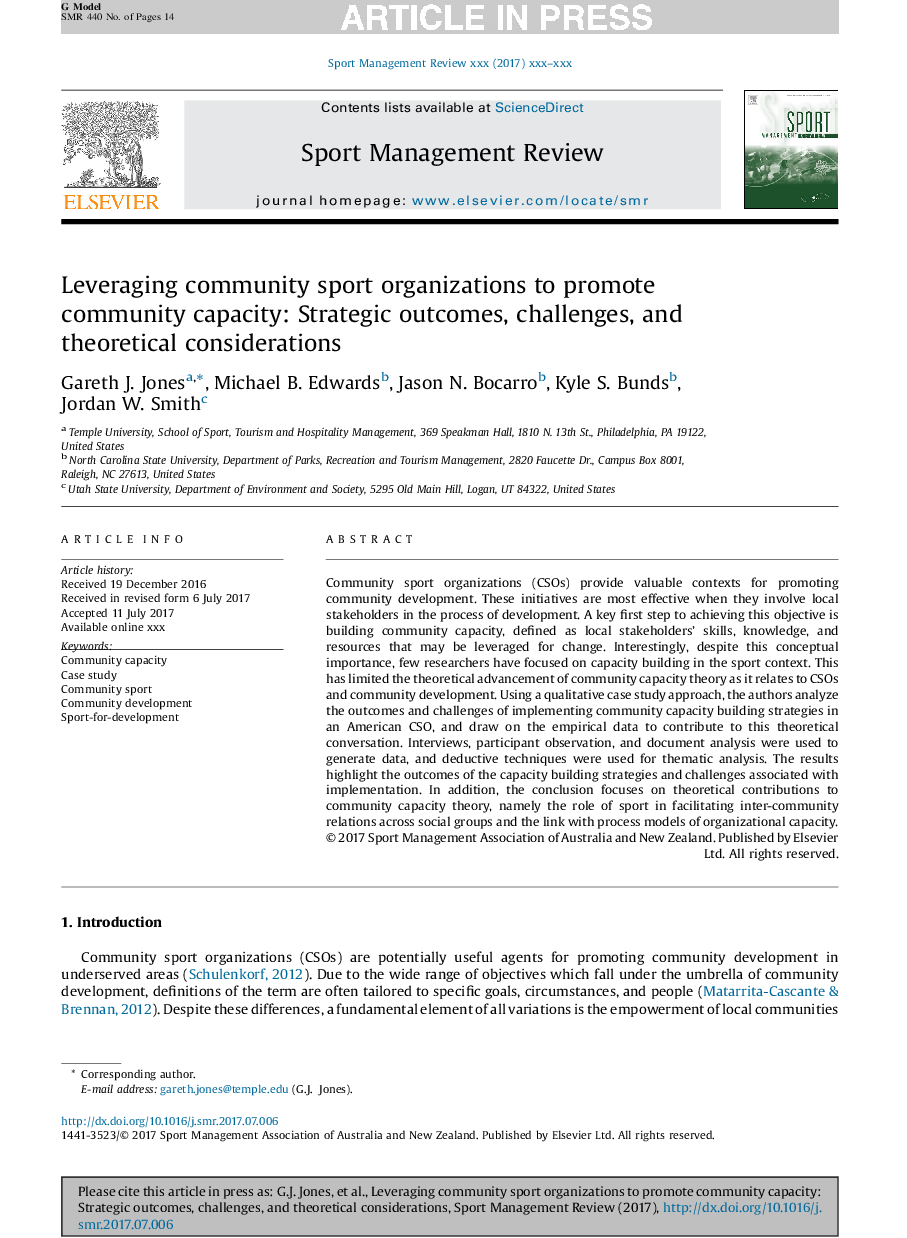| Article ID | Journal | Published Year | Pages | File Type |
|---|---|---|---|---|
| 6576086 | Sport Management Review | 2018 | 14 Pages |
Abstract
Community sport organizations (CSOs) provide valuable contexts for promoting community development. These initiatives are most effective when they involve local stakeholders in the process of development. A key first step to achieving this objective is building community capacity, defined as local stakeholders' skills, knowledge, and resources that may be leveraged for change. Interestingly, despite this conceptual importance, few researchers have focused on capacity building in the sport context. This has limited the theoretical advancement of community capacity theory as it relates to CSOs and community development. Using a qualitative case study approach, the authors analyze the outcomes and challenges of implementing community capacity building strategies in an American CSO, and draw on the empirical data to contribute to this theoretical conversation. Interviews, participant observation, and document analysis were used to generate data, and deductive techniques were used for thematic analysis. The results highlight the outcomes of the capacity building strategies and challenges associated with implementation. In addition, the conclusion focuses on theoretical contributions to community capacity theory, namely the role of sport in facilitating inter-community relations across social groups and the link with process models of organizational capacity.
Related Topics
Social Sciences and Humanities
Business, Management and Accounting
Business, Management and Accounting (General)
Authors
Gareth J. Jones, Michael B. Edwards, Jason N. Bocarro, Kyle S. Bunds, Jordan W. Smith,
